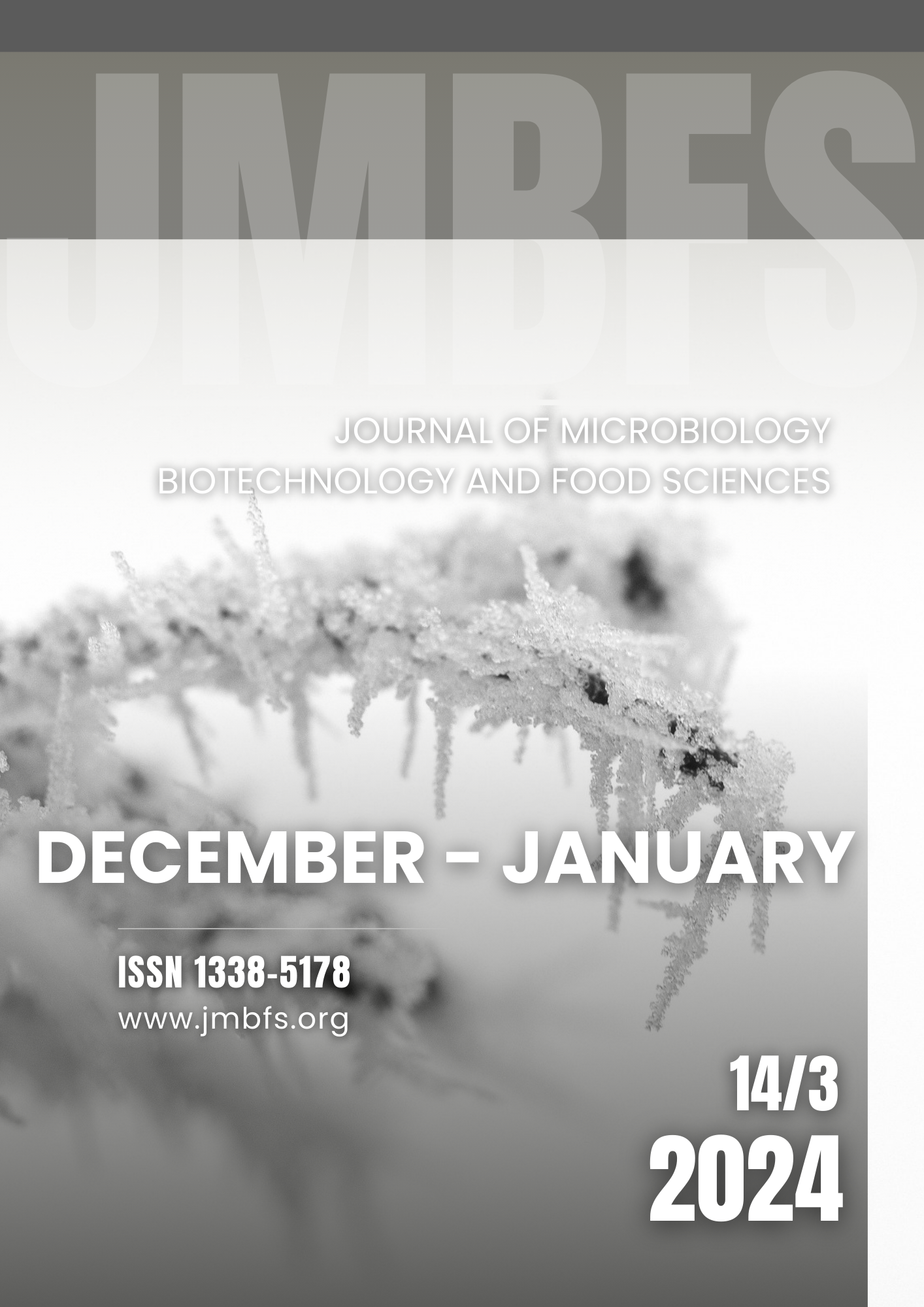BIOLOGICAL PROPERTIES OF ZnO PHYTONANOPARTICLES OBTAINED FROM Annona muricata L. FRUIT PULP FOR POSSIBLE CO-ADMINISTRATION WITH PROBIOTICS STRAINS
DOI:
https://doi.org/10.55251/jmbfs.9963Keywords:
Lactiplantibacillus, phytonanoparticles, biological properties, ZnO, Annona muricata LAbstract
Phytonanotechnology represents a new approach that uses plant extracts to synthesize metal oxide nanoparticles with higher biocompatibility. Recently, the production of ZnO phytonanoparticles (ZnO PTNPs) for food fortification has gained attention due to their lower risk and outstanding properties. Inclusion of ZnO PTNPs might have some effects as antimicrobial properties against pathogens strains, however, could result in challenges when intended to add probiotics in a nanofortified food matrix. For this reason, the co-administration of ZnO PTNPs with probiotics represents a new scenario for the development of modern functional food. This study aimed to evaluate the biological properties including the antioxidant activity, cytotoxicity, stability during gastrointestinal conditions, and the biological effect on the viability of a probiotic strain of ZnO phytonanoparticles obtained from soursop (Annona muricata L.) pulp for possible co-administration in food applications. The synthesis resulted in the formation of polydisperse ZnO nanowires with thicknesses ranging from 82 to167 nm and ζ potential values + 27.5 mV and +41.8, before and after sonication and stabilization protocol. ZnO PTNPs exhibited an improved antioxidant activity (IC50 = 6.14 mg/mL) compared with the ethanolic extract of Annona muricata L. Non-hemolytic activity in human erythrocytes was evidenced, whereas the interaction between ZnO PTNPs and Lactiplantibacillus fabifermentans BAL-27-ITTG allows the preservation of adequate viable counts of the probiotic microorganism (>1.2X109 UFC/mL), suggesting biocompatibility. Moreover, ZnO PTNPs were shown to be highly stable in stomachal and intestinal conditions with maximum rates of dissolution of 20% and 12%, respectively. Finally, it was confirmed a contribution of 45% of zinc for every dose of ZnO PTNPs used. The present study offers a promising path for the production of functional phytonanoparticles and suggests further investigation for future applications in food matrices.
Downloads
Downloads
Published
How to Cite
Issue
Section
License
Copyright (c) 2023 María Candelaria Morales-Ruiz, Miguel Abud-Archila, Lucía María Cristina Ventura-Canseco, Federico Antonio Gutiérrez-Miceli, Benjamín Valdez-Salas, María Celina Luján-Hidalgo

This work is licensed under a Creative Commons Attribution 4.0 International License.
All papers published in the Journal of Microbiology, Biotechnology and Food Sciences are published under a CC-BY licence (CC-BY 4.0). Published materials can be shared (copy and redistribute the material in any medium or format) and adapted (remix, transform, and build upon the material for any purpose, even commercially) with specifying the author(s).





